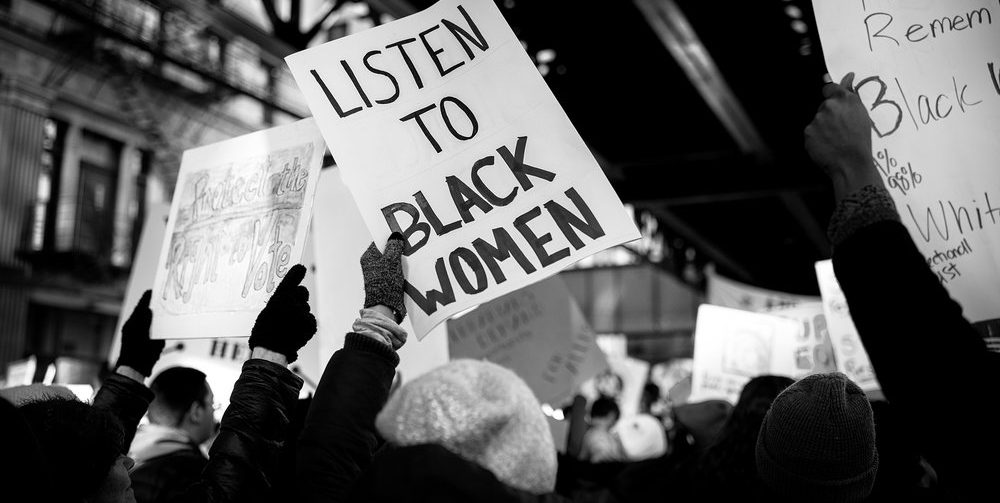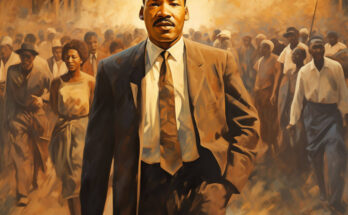For centuries, the contributions of Black Americans have been integral to the development of the United States. From the labor that built the nation’s economy to the intellectual, cultural, and social advancements that shaped its identity, Black history is not a separate narrative—it is the foundation of American history. Period. Yet, despite these undeniable truths, efforts to erase, whitewash, and diminish Black contributions continue in 2025. The recent attacks on Diversity, Equity, and Inclusion (DEI) initiatives, along with the rollback of affirmative action, the censorship of Black history in schools, and the election of the 47th president of the United States, are in-your-face reminders that the battle for historical accuracy and racial justice for Black Americans is far from over.
History is written by those in power, and in America, that has meant a selective retelling that uplifts white figures while diminishing or outright erasing Black voices. Black people were not merely kidnapped from Africa and enslaved laborers in the United States; they were innovators, entrepreneurs, strategists, and revolutionaries. Yet, textbooks reduce Black history to a handful of sanitized narratives—slavery, the Civil Rights Movement, Dr. Martin Luther King, Jr., and Barack Obama’s presidency—without acknowledging the continuous and systemic racist obstacles Black Americans have faced or the facts of their contributions.
The erasure of Black history is not accidental. It is a deliberate act designed to maintain white supremacy and prevent the full recognition of America’s reliance on Black unpaid labor during slavery, intellect, and culture to this day. When states ban books about Black experiences, restrict how racism is taught in schools, and eliminate DEI programs, they are engaging in historical manipulation of racism, ensuring that future generations remain ignorant of the truth.
Diversity, Equity, and Inclusion initiatives were never about exclusion or superiority; they were about addressing systemic inequities that have disadvantaged Black Americans for centuries. Affirmative action sought to level the playing field in education and employment, ensuring that opportunities were not monopolized by those who have historically benefited from racial privilege.
Yet, white women are the largest beneficiaries of DEI and affirmative action , with Black Americans only representing 4% of those in the beneficiary pool. The Supreme Court’s recent decision to strike down race-conscious admissions policies is a significant step backward, reinforcing structural barriers that continue to disadvantage Black students. But again, white women have been the largest recipient of DEI and affirmative action in the United States.
Corporate America, too, is retreating from DEI initiatives, bowing to pressure from those who falsely claim that these programs create division rather than inclusion. The reality is that without intentional efforts to dismantle systemic racism, the default remains white-dominated spaces where Black talent is underrepresented, underpaid, and undervalued. But again, Black Americans represent only 4% of DEI recipients.
At the heart of these attacks on Black history and progress is fear—fear that an honest telling of history will expose the violent and oppressive foundation upon which America was built. White fragility manifests in outrage over teaching the realities of slavery, redlining, and mass incarceration. It shows up in the cries of “reverse racism” whenever policies aim to rectify past and present injustices. The backlash against Black progress is not new; it is a recurring cycle in American history. From Reconstruction to Jim Crow, from Civil Rights to mass incarceration, every gain made by Black Americans has been met with aggressive pushback from white and non-Black people.
Despite these attacks, Black history remains a living testament to resilience, brilliance, and transformation of a power people. Black history will never be erased. The truth cannot be permanently buried. Black history is life itself with Lucy, an Ethiopian woman being the mother of all modern-day humans. In world Black culture, music, art, literature, and political movements continue to shape this nation. It is in the technological advancements, scientific discoveries, and economic innovations that have propelled America forward and Black Americans have been at the forefront of it all.
We — the Black community — must resist the erasure of Black history by any means necessary. We must challenge every attempt to silence Black voices. We must ensure that future generations understand that Black history is not an optional addendum to American history—it is American history. Period.





